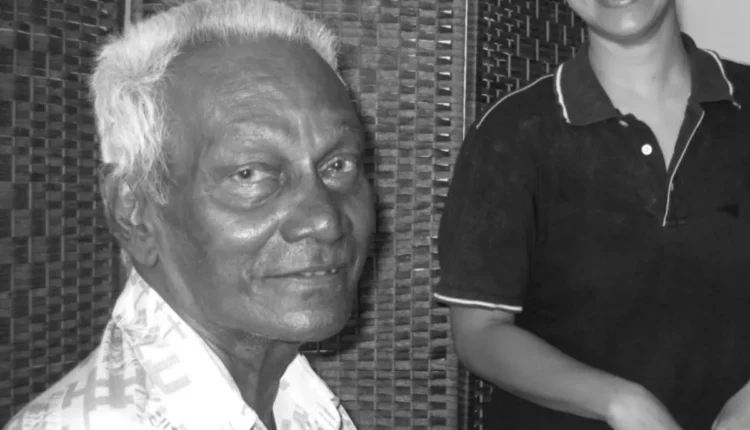Music has always been a universal language, a bridge between cultures, and an expression of identity. Few individuals have had the ability to transform and preserve a region’s musical heritage while blending it with modern influences. One such visionary was Peter Pragas, a name synonymous with Sabah’s musical evolution. His work not only enriched the local music scene but also gave it national recognition.
As the Father of Sabah Modern Music, Peter Pragas’ influence stretched far beyond composing melodies—he became an icon of creativity, passion, and dedication. His life story is one of sacrifice, resilience, and an unwavering commitment to uplifting Sabah’s music.
Peter Pragas: Early Life and the Calling of Music
Born in 1926 in Penang, British Malaya, Peter Pragas was destined for a life immersed in music. From a young age, he displayed an exceptional talent for composition and arrangement. Music was more than just an interest; it was his calling.
His musical journey took him across different parts of Malaysia, but it was in 1957—when he moved to North Borneo (present-day Sabah)—that his legacy truly began to take shape. Accepting a modest-paying role at Radio Sabah, he left behind a well-paying job in Kuala Lumpur’s Filem Negara to pursue a deeper mission—to elevate Sabah’s music scene.
It was a decision that would define the future of Sabah’s music industry.
The Trailblazer of Sabah’s Music Industry
At Radio Sabah, Peter Pragas revolutionized music broadcasting. He introduced structured music programs, created talent showcases, and provided a platform for emerging musicians. His efforts fused traditional Sabah folk music with modern Western musical elements, creating a distinct and innovative sound.
He was deeply inspired by the melodies of local grass cutters in Kota Kinabalu (formerly Jesselton). Their pentatonic folk tunes intrigued him, and he envisioned an expanded musical landscape—one that retained its native essence but also embraced contemporary music styles.
His ability to blend Sabah’s indigenous rhythms with classical and Western influences became his signature. This approach not only preserved traditional music but also made it accessible to a wider audience.
A Legacy of Musical Achievements
1. Pioneering Sabah’s First Instrumental Album
In 1978, Peter Pragas made history with his first instrumental album, “Land Below The Wind”, produced under EMI Records. The album became an iconic representation of Sabah’s musical landscape, immortalizing its beauty through melody.
This was followed by his dual album, “Sabah Centennial Celebration,” in 1981, which commemorated Sabah’s 100-year milestone. His compositions captured the essence of Sabah’s history, its people, and their aspirations.
2. The Architect of Sabah’s Music Talent Shows
During the 1960s and 1970s, Peter Pragas created the first talent shows in Sabah, providing local artists with a platform to showcase their talents. Many of these artists went on to become established musicians.
His commitment to nurturing young talents proved to be an invaluable contribution to Sabah’s entertainment industry.
3. Founding the Sabah Association of Senior Citizens
In 1987, long after retiring from state radio, Peter Pragas remained active in the community. He founded the Sabah Association of Senior Citizens, showing his dedication not only to music but also to society at large. His belief in uplifting and empowering people extended beyond music—he was a champion of community service.
4. National Recognition – Father of Sabah Modern Music
In 1999, Peter Pragas was officially honored as the “Father of Sabah Modern Music” at the Patriotism 2020 exhibition in Kota Kinabalu’s Sabah Museum.
It was a fitting tribute to a man who had dedicated his life to shaping the identity of Sabah’s music.
The Heart and Soul of Sabah’s Music Community
Peter Pragas was not just a composer or musician; he was a mentor, leader, and an inspiration.
His colleagues and fellow musicians remember him as gentle, humble, and deeply passionate about music. Whether through his radio programs, compositions, or live performances, he left an everlasting mark on everyone who had the honor of knowing him.
One of his most well-known compositions, “Kanou Sumazau” (Let’s Dance in the Kadazan Language), has been the opening theme for Sabah’s Kadazan radio service for over 40 years. This piece, like many of his works, continues to live on—proof that his music is truly timeless.
Final Years and Legacy
On 30 June 2014, at the age of 87, Peter Pragas passed away, leaving behind a rich legacy of music, love, and dedication.
His funeral at Stella Maris Roman Catholic Church in Tanjung Aru was a moment of deep reflection for many in the music industry. Laid to rest in the Roman Catholic Cemetery on Penampang Road, his spirit and influence remain very much alive in Sabah’s music scene.
Also Read:Narayana Pillai: The First Indian Contractor and Merchant of Singapore

